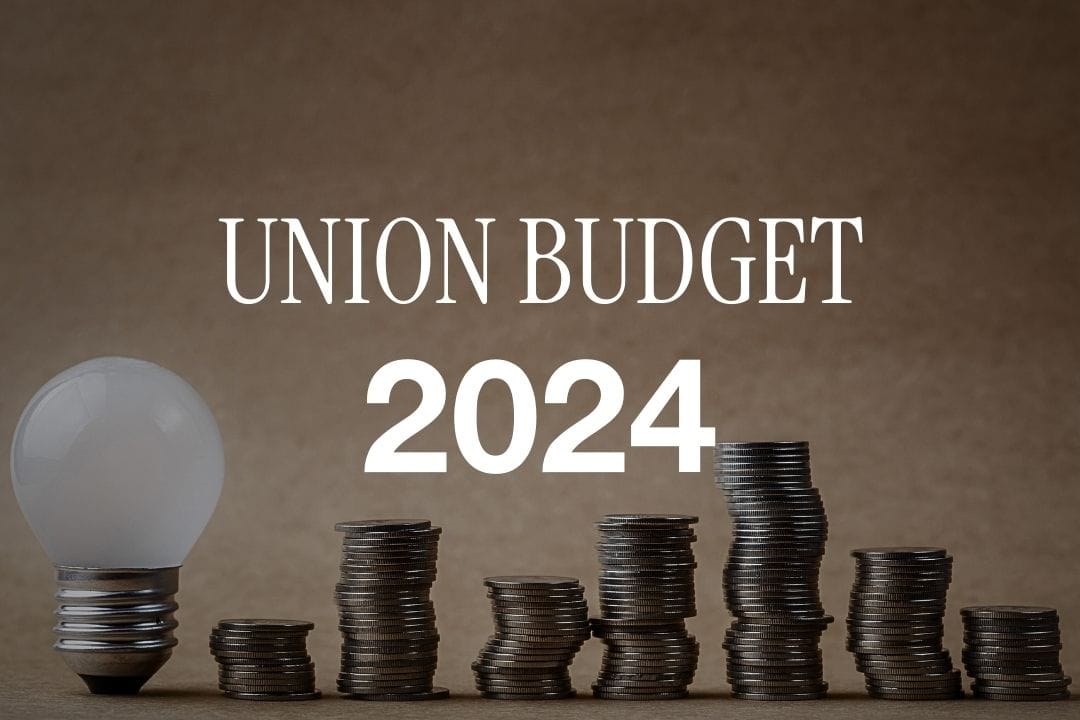Decoding India’s Budget 2024: Key Tax Changes for NRIs

The Finance Minister announced several changes in the 2024 Union Budget that are intended to streamline and rationalise certain aspects of taxation, along with improving the ease of doing business in India. Several of these measures apply to capital gains and income for all tax-filing entities and, hence, would apply to the 30 million+ NRIs spread across the globe as well.
Overall, the budget 2024 is a mixed bag for NRIs, with capital gains tax liability increasing in several cases and the silver lining of TDS impact coming down in real estate transactions.
Overview of Union Budget 2024
What has decreased?
- Long Term Capital Gains (LTCG) tax for unlisted equity shares, including startup investments, decreased from 20% with indexation to 12.5% without indexation – this is good news for NRIs investing in Indian startups.
- Similarly, LTCG tax on sale of real estate has also decreased from 20% with indexation to 12.5% without indexation – The post-budget rollback to the earlier indexation-based calculation is not applicable for NRIs.
- Accordingly, TDS on the sale of property has been reduced from 20% to 12.5% for long-term holding – this should come as a big relief because TDS for NRIs is typically deducted on the sale value and not on the gains.
What has increased?
- Short Term Capital Gains (STCG) tax for equity went up from 15% to 20%
- LTCG tax for equity went up from 10% (with exemption up to Rs. 1 Lakh per FY) to 12.5% (with exemption up to Rs. 1.25 Lakh per FY)
- TDS for NRIs on sale of listed equity shares and equity Mutual Funds units also went up from
- 10% to 12.5% for long-term holding
- 15% to 20% for short-term (<12 months)
What hasn’t changed:
- STCG tax for unlisted equity shares, including startup investments, remains at the applicable slab rate
- STCG tax on the sale of property remains at the applicable slab rate
- TDS on the sale of property remained the same at 30% for the short term (<24 months)
- TDS on rental income remains at 30%
Detailed overview of India’s 2024 Budget changes
In this section, we will get into the details related to the changes announced in the Union Budget of 2024.

1. Revised Tax Rate Structure under the New Tax Regime
The changes announced in the tax slab structure under the new regime could alter financial planning strategies for NRIs, necessitating a closer look at their tax liabilities and potential benefits under the New Tax Regime. It may now be beneficial for certain income groups to switch to the New Tax Regime from the old one.
Tax Slab for FY 2023-24 | Tax Rate | Tax Slab for FY 2024-25 | Tax Rate | Change |
Upto ₹ 3 lakh | Nil | Upto ₹ 3 lakh | Nil | No change |
₹ 3 lakh - ₹ 6 lakh | 5% | ₹ 3 lakh - ₹ 7 lakh | 5% | Slab threshold increased by ₹1 lakh |
₹ 6 lakh - ₹ 9 lakh | 10% | ₹ 7 lakh - ₹ 10 lakh | 10% | Slab threshold increased by ₹1 lakh |
₹ 9 lakh - ₹ 12 lakh | 15% | ₹ 10 lakh - ₹ 12 lakh | 15% | Matched with the previous slab |
₹ 12 lakh - ₹ 15 lakh | 20% | ₹ 12 lakh - ₹ 15 lakh | 20% | No change |
> 15 lakh | 30% | > 15 lakh | 30% | No change |
2. Simplification and Rationalisation of Capital Gains
Where previously there were multiple definitions for long-term and short-term holding periods for different asset classes, along with different applicable tax rates, Budget 2024 announced a more simplified set of rules.
- Listed financial assets (e.g. listed equity shares and equity Mutual Fund units) held for more than 1 year will be classified as long-term, and if held for less than 1 year, would be classified as short-term.
- Unlisted financial assets (e.g. unlisted equity shares) and all non-financial assets (e.g. real estate) will have to be held for at least 2 years to be classified as long-term, and if held for less than 2 years, would be classified as short-term.
Understanding these new distinctions will help investors with effective tax planning and maximising investment returns.
As you can see in the table below, the long-term capital gains tax across most categories of financial and non-financial assets has been standardized to 12.5% (with no indexation benefit), while the short-term capital gains would similarly be taxed uniformly at 20% for most categories. TDS deductions for NRIs will change accordingly from July 23, 2024, onwards, as tabulated below.
As a reprieve to retail investors, the Budget also provides for an increase in the annual exemption of long-term capital gains from listed equity shares and equity Mutual Fund units to Rs. 1.25 Lakhs per financial year. This is intended to offset the increase in tax from 10% to 12.5%.
Discover everything you need to know about the updated GIFT City liquor policy for employees and visitors.
Synopsis of the Tax Changes in the Union Budget 2024
The table shows a synopsis of the tax changes in different asset classes
Before Union Budget 2024 | After Union Budget 2024 | ||||
|---|---|---|---|---|---|
Short-Term Capital Gain Holding Period and Tax | Long-Term Capital Gain Holding Period and Tax | Short-Term Capital Gain Holding Period and Tax | Long-Term Capital Gain Holding Period and Tax | Comments | |
Listed stocks and equity mutual funds | <12 months 15% | >=12 months 10%, on gains above Rs 1 lakh | <12 months 20% | >=12 months 12.5%, on gains above Rs 1.25 lakh | No change in holding period, but change in taxation |
Debt and non-equity mutual funds | NA Taxed as per the slab rate | NA Taxed as per the slab rate | NA Taxed as per the slab rate | NA Taxed as per the slab rate | No change in either holding period or taxation |
Listed bonds | <12 months Taxed as per slab rate | >=12 months 10% | <12 months 20% | >=12 months 12.5% | No change in holding period, but change in taxation |
REITs / InvITs (with less than 90% exposure in equity ETFs) | <36 months 15% | >=36 months 10% | <12 months 20% | >=12 months 12.5% | Change in holding period and change in taxation |
Non-equity Fund of Funds/ Gold and Silver ETFs/ Gold Funds/ Overseas FOFs | NA Taxed as per the slab rate | NA Taxed as per the slab rate | <24 months 20% | >=24 months 12.5% | Change in holding period and change in taxation |
Physical real estate | <24 months Taxed as per the slab rate | >=24 months 20% with indexation benefit | <24 months Taxed as per the slab rate | >=24 months 12.5% with no indexation benefit* | No change in holding period, but the change in taxation |
Unlisted bonds | <24 months Taxed as per the slab rate | >=24 months Taxed as per the slab rate | <24 months Taxed as per the slab rate | >=24 months Taxed as per the slab rate | No change in holding period and taxation |
Physical gold | <36 months Taxed as per the slab rate | >=36 months Taxed as per the slab rate | <24 months Taxed as per the slab rate | >=24 months 12.5% with no indexation benefit | Change in both holding period and taxation |
Unlisted stocks/ Foreign Equity/ Debt | <24 months Taxed as per the slab rate | >=24 months 20% with indexation benefit | <24 months Taxed as per the slab rate | >=24 months 12.5% with no indexation benefit | No change in holding period, but the change in taxation |
*Resident Indians have an option to choose between 12.5% without indexation or 20% with indexation for real estate acquired before 23rd July 2024. This option is not there for NRIs.
3. Tax Deducted at Source (TDS)
Tax deducted at source (TDS) is a mechanism where the payer making a payment deducts the tax to be paid to the government before paying the other person or entity.
This is particularly important in the case of NRIs, who primarily live and work outside India. By collecting TDS, the government ensures that any potential tax dues on Indian income are accounted for before the money leaves India. TDS is deposited with the government on behalf of an NRI by the entity making the payment to the NRI (e.g. a tenant in the case of rental income from property or the Mutual Fund company in case of sale of Mutual Fund units). If a refund is applicable, then the individual can submit a claim for a refund by filing their annual Income Tax Return (ITR).
With the changes in capital gains taxation announced in Budget 2024, the key applicable TDS rates for NRIs will now be as follows:
Asset type | TDS on Short-Term Capital Gains | TDS on Long-Term Capital Gains | Who deducts it, on what amount and when |
|---|---|---|---|
Sale of Listed assets – Stocks, Bonds, Equity Mutual Funds, REITs and InvITs | 20% | 12.5% | TDS deducted by broker on capital gains at the time of settlement |
Sale of Non-Equity FOFs/ Gold and Silver ETFs/ Gold Funds/ Overseas FOFs | 20% | 12.5% | TDS deducted by Mutual Fund on capital gains at the time of sale of MF units |
Sale of Debt-oriented Mutual Funds | 30% | 30% | TDS deducted by Mutual Fund on capital gains at the time of sale of MF units |
Sale of Unlisted stocks/ Foreign Equity/Debt | 30% | 12.5% | TDS deducted by the buyer on the total sale consideration at the time of payment |
Sale of Unlisted Bonds | 30% | 30% | TDS deducted by the buyer on the total sale consideration at the time of payment |
Sale of Physical Gold | 30% | 12.5% | TDS deducted by the buyer on the total sale consideration at the time of payment |
Sale of Physical Real Estate | 30% | 12.5% | TDS deducted by the buyer on the total sale consideration at the time of payment |
Rental Income | 30% | 30% | TDS deducted by the tenant every month when transferring rent |
Consultant/ Professional Income | 30% | 30% | TDS deducted by the client whenever payment is made against the invoice raised |
Impact:
Taken together with the change in capital gains taxes and the TDS rates, this will significantly simplify tax planning for large sections of the taxpaying population, at the cost of increasing the tax burden for some.
The increase in long-term capital gains tax to 12.5%, coupled with the increase in the exemption limit up to Rs 1.25 Lakhs, will help protect the interests of long-term retail investors while increasing the overall tax collections for the government through this channel.
The increase in short-term capital gains tax to 20% is also intended to target increased tax collection from the short-term trading and speculation markets while avoiding hitting the purse of long-term investors.
The change in long-term capital gains taxation for real estate is one of the most significant announcements and will likely increase the tax burden on property sales. Although the tax rate has come down from 20% to 12.5%, the removal of the indexation benefit means that gains will now be calculated based on the actual purchase price of the property rather than the indexed price, as was done till now.
After significant public outcry on the issue, the government subsequently reintroduced the option to calculate the long-term capital gains on real estate as per the old method of 20% with indexation benefit for properties acquired before 23rd July 2024. Resident individuals and HUFs can now calculate their tax liability under both methods and choose whichever lowers their tax liability. NRIs, however, must compulsorily follow the new taxation formula of 12.5% without indexation.
4. Miscellaneous changes relevant for NRIs :
Abolishment of Angel Tax:
The abolishment of angel tax across all categories of investors has become very welcome news for the Indian startup community. NRIs, now wanting to invest in the Indian startup ecosystem, can do so without worrying about any angel tax impact.
Impact:
With the boom in Indian entrepreneurship over the past decade, NRIs flocked to invest in the exciting Indian startup environment as well. However, the angel tax was a significant burden for startups on their scarcest resource, ie investor capital. The removal of this tax is anticipated to spur the growth of startups as it does not charge any tax on investments above fair market value and directly frees up significant amounts of capital for startups to invest in growing their business.
- Closing business loopholes for ‘rental properties
The Union Budget 2024 has also brought in an important change in the taxation of rental income from residential properties, a key asset class and source of income for NRIs investing in India. Individual taxpayers, including NRIs, must report all rental income as ‘Income from House Property’ from FY 2024-25.
They can no longer report rental income under ‘Profits and Gains of business or profession’. This means they cannot claim deductions as ‘business expenses’, which earlier allowed a substantial reduction in taxable income in excess of the deductions allowed for a ‘House Property’. This was a widespread practice in the short-term housing rental market (such as homestays and B&Bs). The deductions available for ‘House Property’ (namely, the municipal tax, standard deduction of 30% on the annual rent value of the property, and deduction of interest of any home loan against the property) continue to be available.
What is the new TDS rate for NRIs in Budget 2024?

With the changes to the new tax regime and capital gains taxation, NRIs need to plan their investments and address critical financial tasks to ensure compliance, optimise taxes, and make informed investment decisions for the ongoing year. The beginning of the fiscal year is a great time to consider the following:
1) Goal-planning – Start the new year by reviewing financial goals and investment portfolios, assessing milestones, and checking in with your financial advisor.
2) Stay informed about deductions that are available – If you are still filing returns under the old tax regime, utilise tax-saving opportunities, like Section 80C deductions, to minimise tax liabilities.
3) Monitor TDS regularly – Track how much TDS has been deposited on your behalf to ensure compliance by the buyer/tenant and to know how much refund is due at the end of the year. These details are available on the Income Tax website.
4) File Tax returns – It’s essential for NRIs to understand their tax obligations and file their ITRs correctly in India. This is essential for claiming any applicable TDS refund.
To conclude, understanding taxes is crucial for making informed financial decisions. Knowing how taxes impact your income, investments, and savings helps you optimise your strategies. Having said that, tax laws can change with new policies. Focus on building a solid, diversified portfolio that aligns with your long-term goals, and treat tax planning as a supporting factor, not the foundation of your investment strategy.

Comments
Your comment has been submitted